INTERVIEW: Yasuharu Konishi and the Happy End of PIZZICATO FIVE
Presenting a 2001 conversation with a Japanese musical genius
Composer-producer-musical mastermind Yasuharu Konishi founded PIZZICATO FIVE in 1985 while still in college. Initially, the group’s recorded output was made up of a revolving door of male and female vocalists. It wasn't until 1988 when singer-superstar Maki Nomiya joined the lineup that the concept and the band fully cemented.
From there, PIZZICATO FIVE became a trio, and then a duo, and went global, taking Tokyo chic and the groovy Shibuya-kei sound with them. They had college and alternative radio hits in America, signed to Matador Records, and opened the doors globally for other Shibuya-kei artists like Cornelius and Seagull Screaming Kiss Her Kiss Her.
Then, on March 31, 2001, in a hail of farewell concerts and greatest hits packages, PIZZICATO FIVE finally called it a day. For fans, a world without PIZZICATO FIVE to keep them happy and elevated seemed to be a very bleak prospect indeed.
But, as you know, All Things Must Pass...
Maki retired from the spotlight to raise her child. And Konishi? He decided to tour America as a DJ, showing off skills mastered during countless Shibuya and Shinjuku lounge and salon sessions.
Since then, Konishi has continued to write and produce music for other acts, sometimes releasing solo music under the banned PIZZICATO ONE. He’s also reunited with Nomiya Maki for occasional projects, although the pair have not recorded again under the PIZZICATO FIVE name.
This interview was conducted mere days after the disbanding of PIZZICATO FIVE at San Francisco's Great American Music Hall in early 2001.
TokyoScope: PIZZICATO FIVE recently broke up, but there was no announcement, and many fans aren’t sure what the situation is. Can you explain why PIZZICATO FIVE broke up?
Yasuharu Konishi: We didn't make any statements. This is now an internet culture. Everyone can know the news easily. Why did we separate? Our new album, Çà et là du Japon, was too much of a masterpiece for me. It is like the Sgt. Peppers of PIZZICATO FIVE. I don't need to do a Let It Be. When I made this album, I felt like it was something beyond me.
There were incarnations of PIZZICATO FIVE before without the participation of Nomiya Maki. Is it possible that PIZZICATO FIVE could continue without her?
Hmmmm. I'm too old. [laughs]
I’ve heard that you're happiest when working as a DJ. Why is that more fun than being a composer or a producer?
I really love records. To be a DJ is to touch and love records all night long. This is the reason.
There's always been a strong visual element to your work, such as references to fashion and cinema. Do you have any kind of influence from anime or manga as well?
I'm 42 years old now. But when I was little, I used to read a lot of manga, not only Japanese manga but also American and European comics. So having a bit of that influence is natural for me. Cultural vice-versa.
I'm curious about what you think of Daft Punk, who have openly used anime and manga imagery, particularly Leiji Matsumoto's work. I'm guessing that a lot of your influences come from the fifties and sixties, while theirs come from the seventies and eighties…
I am definitely a sixties maniac. I met Daft Punk twice, and the difference between our ages is about twenty years. I believe that most people have a strong attachment to the period when they first became interested in music. That's what I call nostalgia. I started listening to music around 1969, and I'm always looking for the feeling of that era, especially '66 and '67. I think Daft Punk is like that. They are from 1980 or '81. Just like you! The fact that Daft Punk used Leiji Matsumoto was very shocking to Japanese people. No one would think of asking Matsumoto for permission to use his work. They would think, "Oh, it would be too expensive to get him."
I once found a list on the internet of your top 200 favorite records of all time. Many of them are what we would call "soft rock," which has never been cool in America but seems to have always been a big part of the Shibuya-kei sound. Why do you suppose that is?
For example, which musicians?
The Mamas and the Papas, The Association, Sagittarius, you know, the West Coast Sound, AM rock...
Soft rock was the music of '66 and '67, so it is very special to me. For most rock and roll fans, soft rock is too sophisticated. It's not uncool. Actually, it is always hip. How do you feel about soft rock in comparison to The Amboy Dukes [Ted Nugent's acid rock combo ala 1968's Journey to the Center of the Mind]? Which do you think is more intelligent?
It depends on the day of the week.
Same for me.
An album like Couples [Pizzicato 5's 1987 debut LP] is very soft, soft rock. The influences on later PIZZICATO FIVE albums opens up to include more sounds like Philly Soul and club music. With so many influences going on, what do you think is your own unique sound? The true Konishi sound?
This is what we call "genius"... [laughs]
The last couple of PIZZICATO FIVE records had a more adult feel, maybe a calmer sound with more real instruments in the studio. What sort of musical direction do you think you are moving in now?
PIZZICATO FIVE became the kind of group that created music for adults. Either the band did, or I did. So that is why I like to be a DJ, to make stupid music again.
What are your impressions right now of the mood in the Japanese entertainment industry?
It never changes. One thing I really want to say is that all over the world, music industries aim for America, but some intelligent people know that it is not the kind of goal they should aim for. Now in Japan, especially the younger generation, all they want to do is follow hip hop or house music, black culture and black music. This is not only in Japan but all around the world too. Everybody is looking for something good outside of their own culture. It was the same with me. When I was younger, I was searching for something outside of my own culture. It is typical that these people would get accused or attacked by people who call them “otaku”. Out of all of these, only a few people can become successful. Like me [laughs].
I've heard that you originally wanted to become a movie director. Are you still interested in filmmaking?
Currently, I'm pursuing an offer from a Japanese TV company, but it is really in the talking stages right now. I really want to make a film, but I always stop and question myself, can I really do something like that?
So, what are some of your favorite films?
There are so many. I really like Richard Lester.
Like Superman II?
No. I prefer Juggernaut.
So, for someone who has never seen you DJ before, what can they expect from tonight's performance?
Slapstick. Silly tunes. I want to be the Buster Keaton of music.
Minutes after this, Konishi hit the stage with an arsenal of CD carryalls and vintage vinyl tote-bags. Mixing up everything from Jesus Christ Superstar to Finger 5 (Japan's seventies-era answer to The Jackson 5) along with snappy PIZZICATO FIVE break beats, Konishi danced around like a little kid, mirroring the adoring audience.



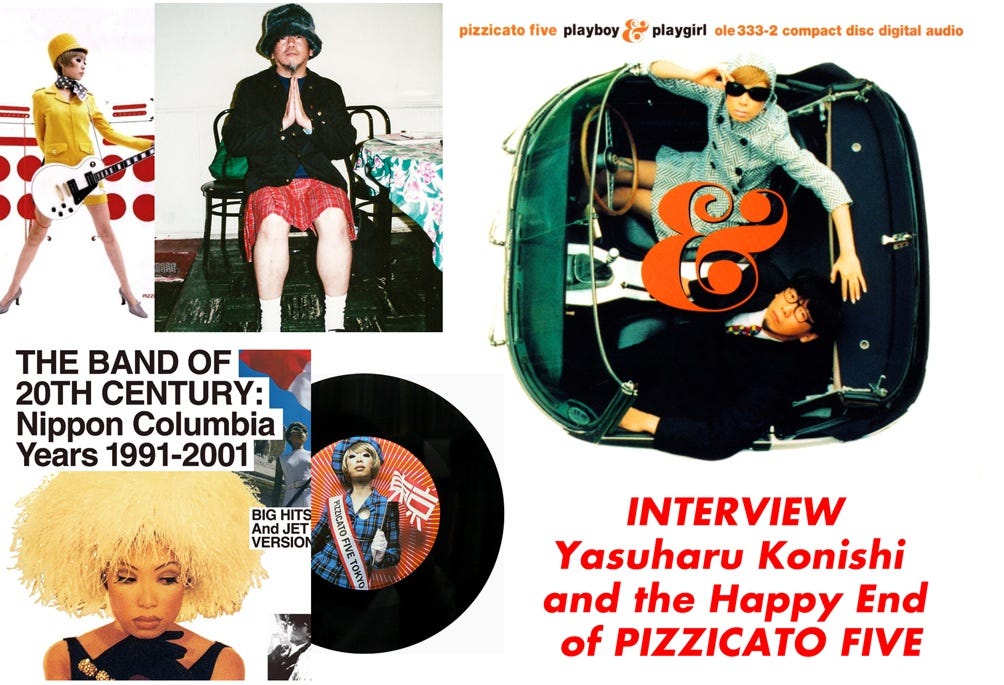
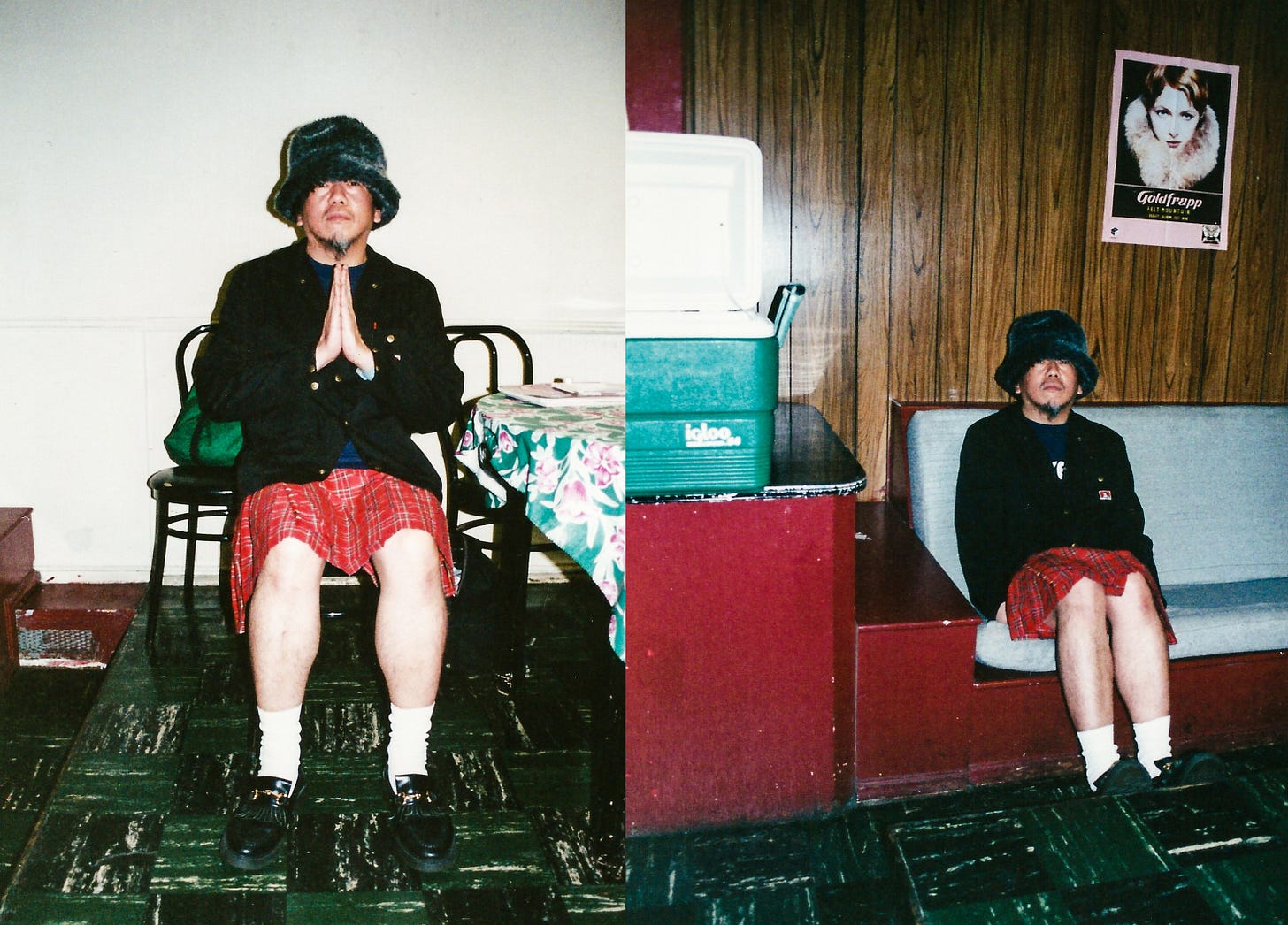
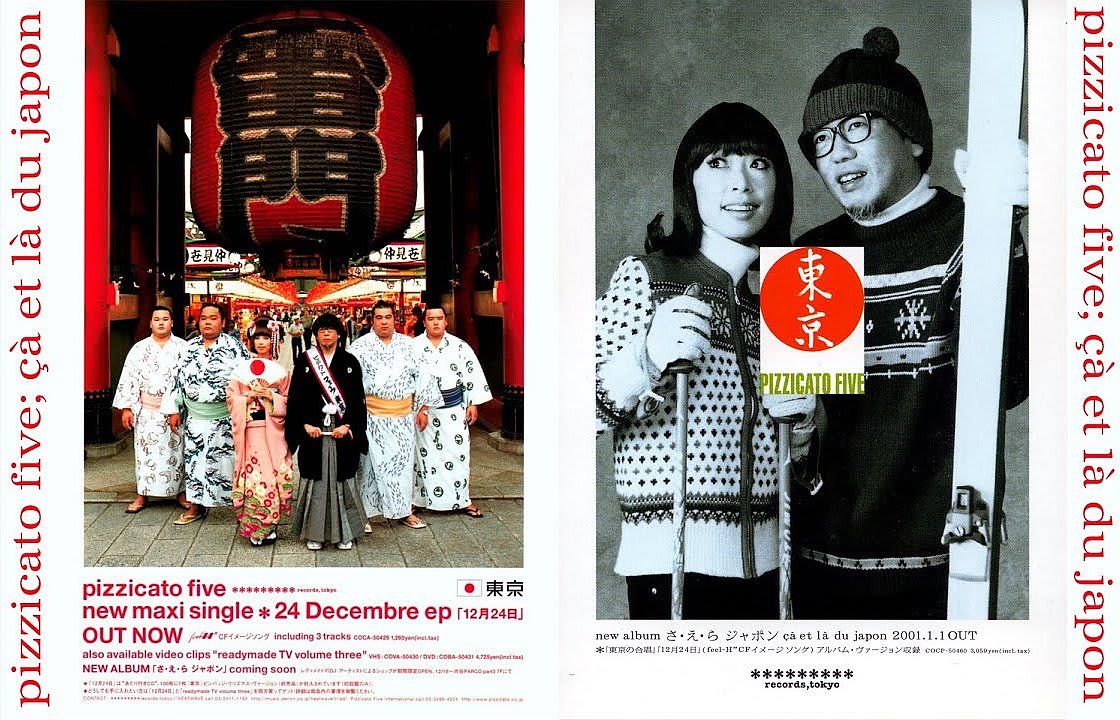
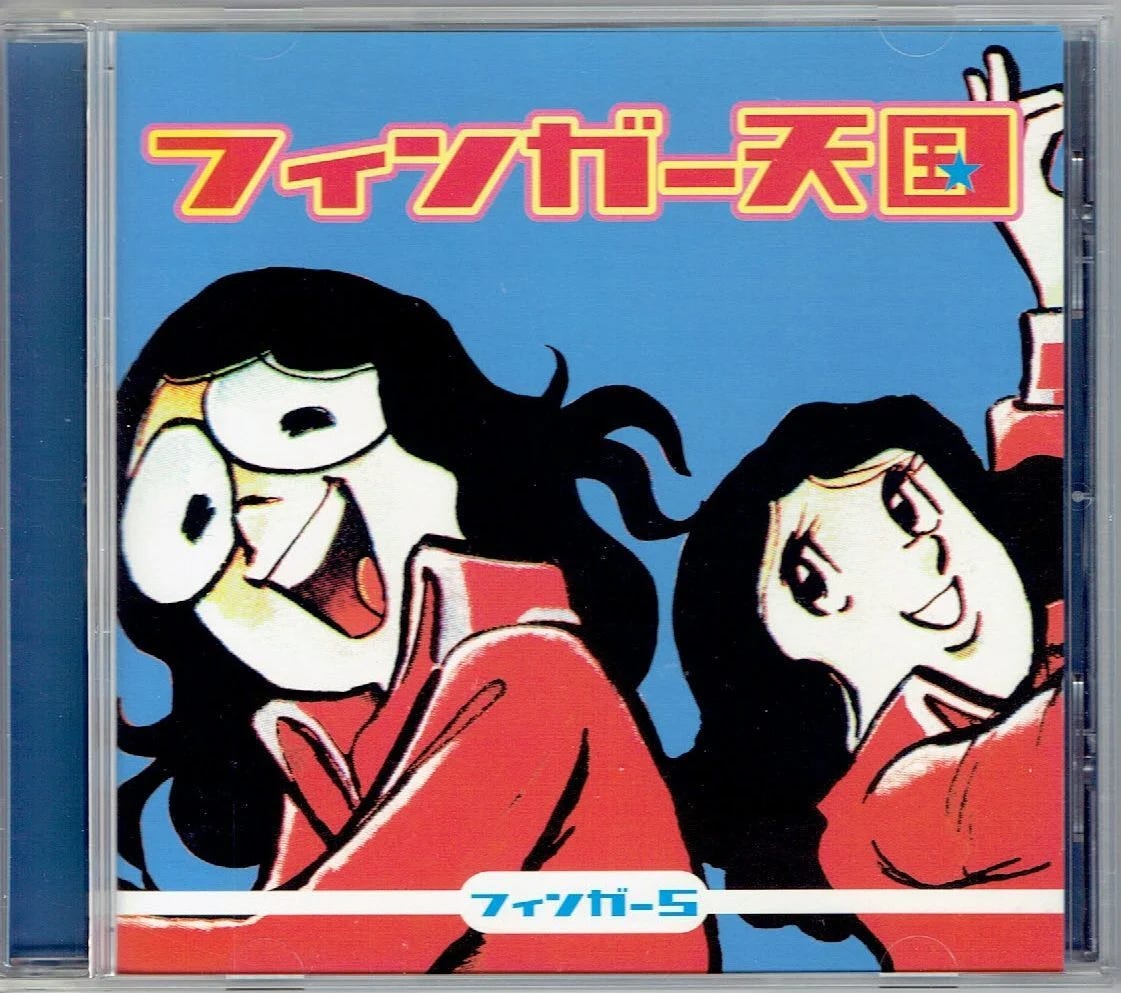
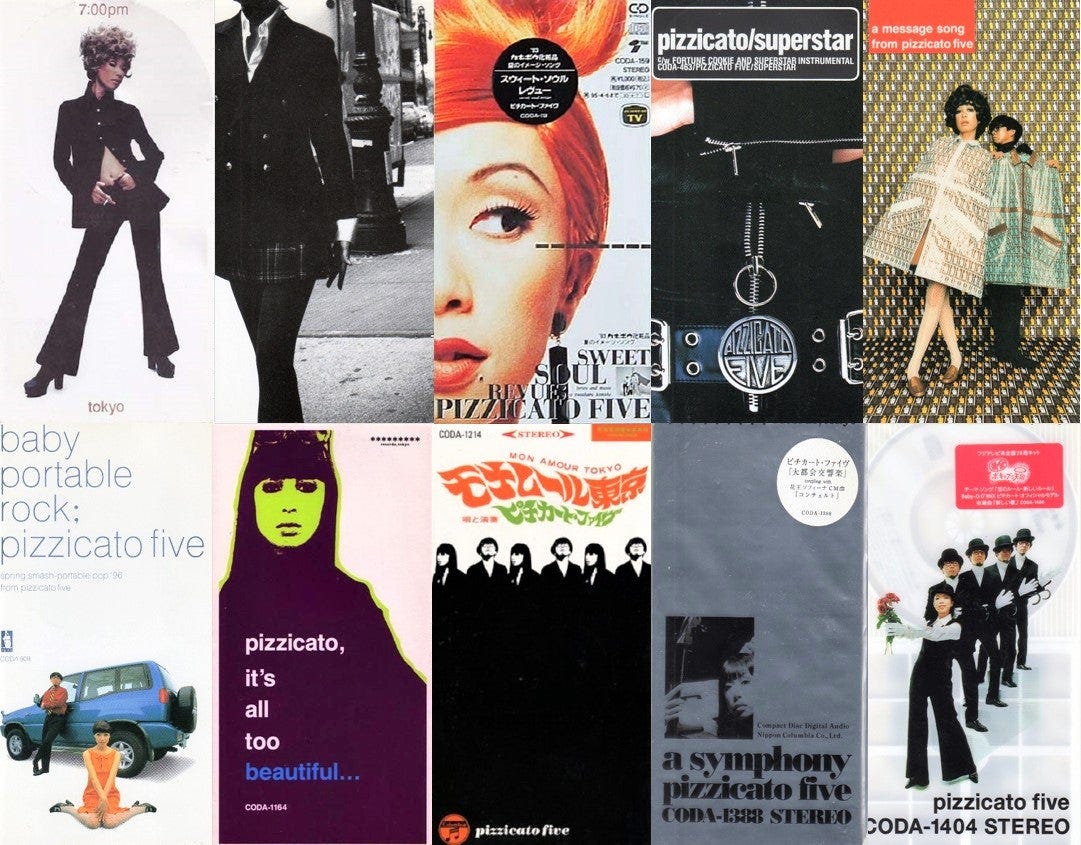
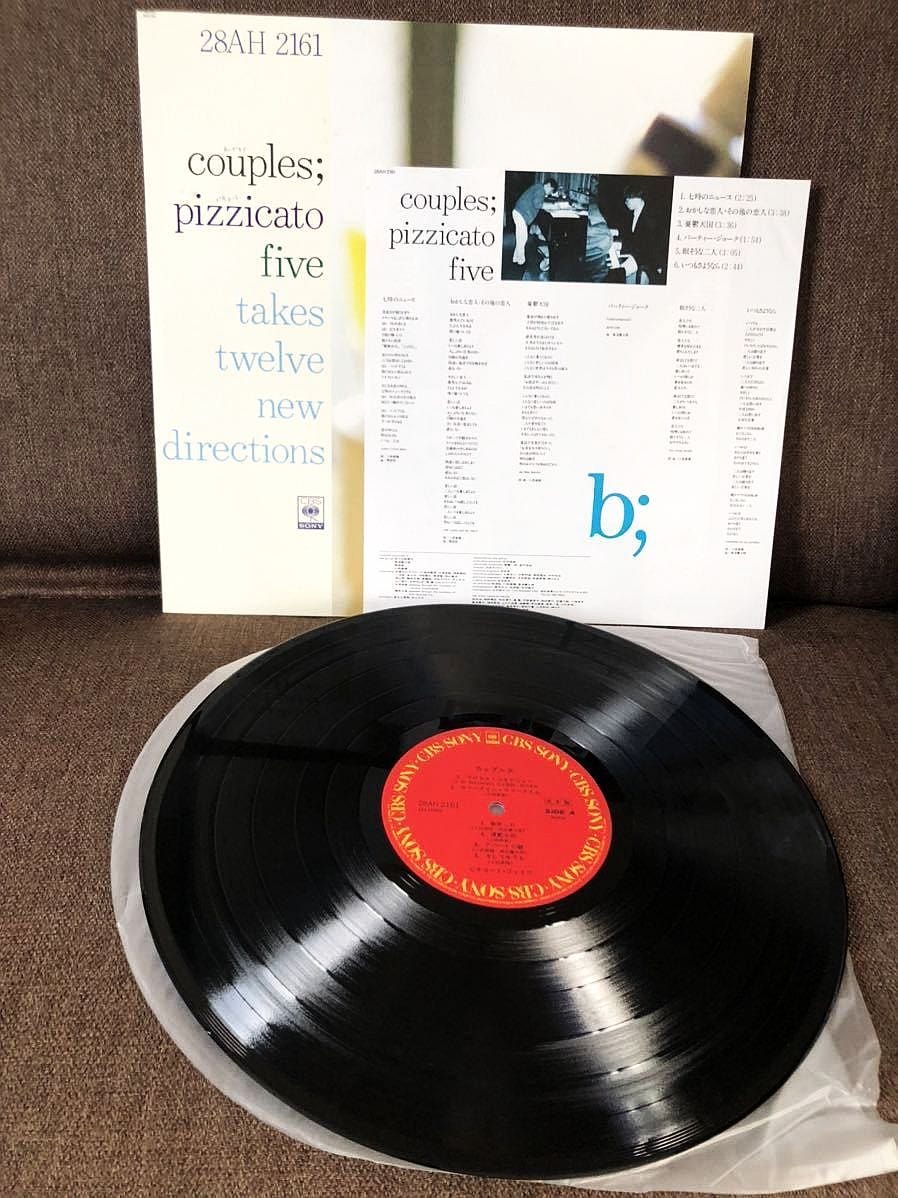
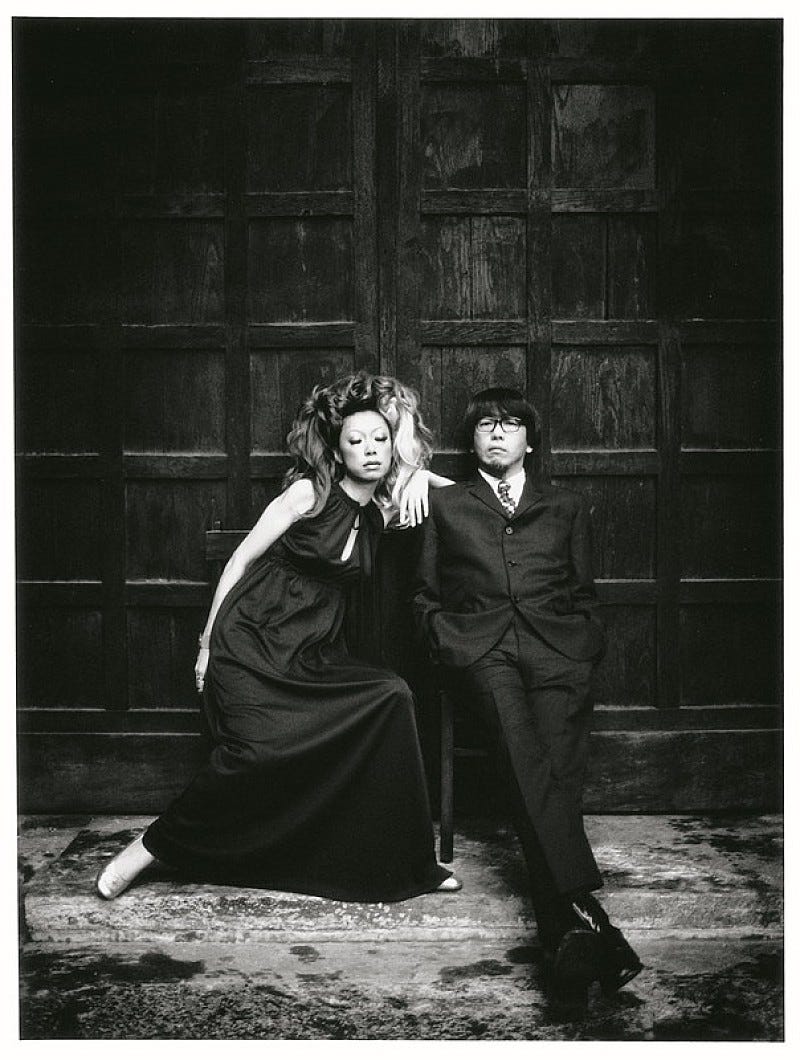
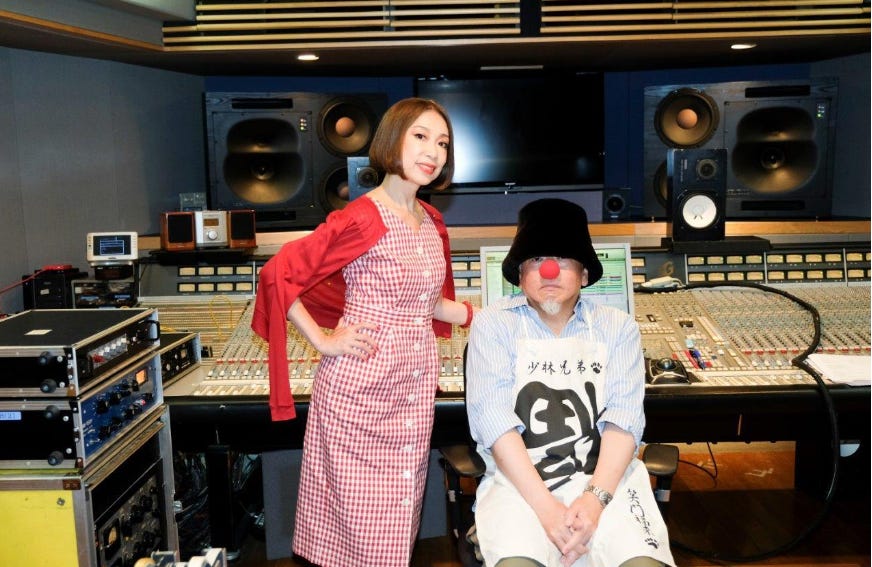

Love Pizzicato Five. Thank you so much for sharing this. I am a little sad that they played in 2001 and I didn't know it! I went to their shows in 95 and 97. Do you think Konishi was joking about his comment about the last album being their Sgt Peppers?
Thank you for the interview but I gathered that the questions (which were very good, by the way) were far longer than the answers. Konishi was trying to evade answering anything seriously like an adult. Frankly, when Maki decided to retire to raise her child, that was the final curtain for Konishi. Maki could never be replaced and let’s face it, the quality of his songs were in deep decline by the end. Ça et La du Japón is a mediocre album, not “a masterpiece” but a masterpiece of shit. The freshness was gone. Maki was tired and I don’t blame her. Other singers took her place on that last album but despite their skills there is little they could do with crap songs. Maki has released a few albums since the breakup. None are memorable. Konishi hasn’t created anything worth bothering to find out about. But this sort of thing happens to all bands. All good things come to an end. Konishi is like 64 now. I’m sure he no longer wears dresses or poses for photos taking a shit on the toilet as scat topics are big in Japan but nowhere else.